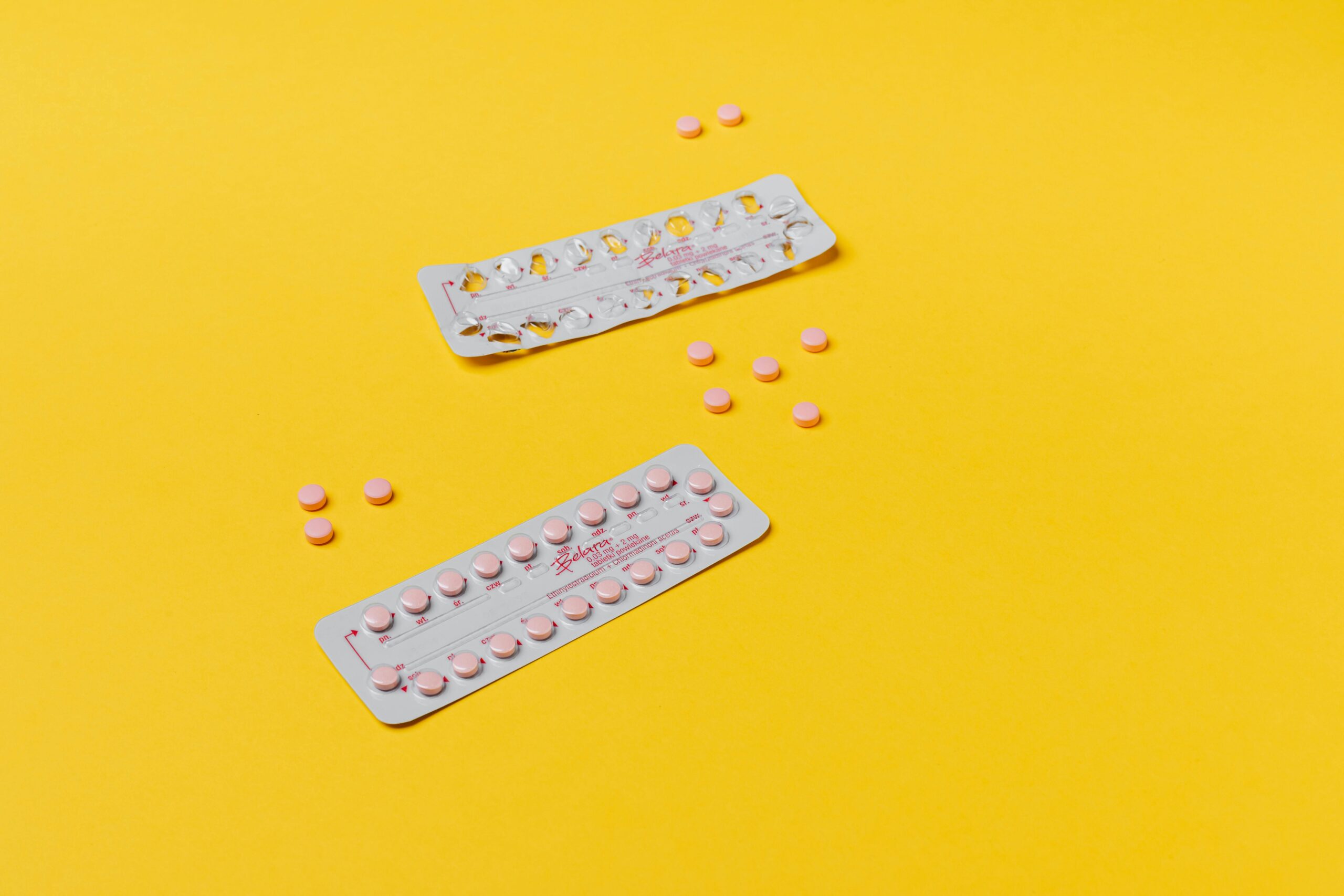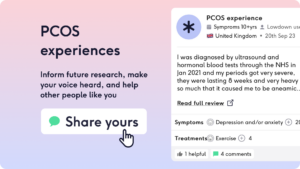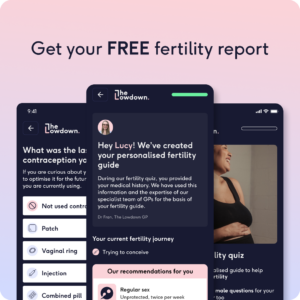
Should I take Inositol for PCOS?
What's the lowdown?
Many people who have polycystic ovary syndrome (PCOS) have insulin resistance, which can cause hormonal imbalances and worsen other symptoms
Inositol is a naturally occurring sugar alcohol that can be taken as a supplement to potentially improve symptoms of PCOS
Supplementing with inositol can regulate the menstrual cycle, as well as improve fertility outcomes
There are some potential side effects of supplementing with inositol, including digestive issues
What is PCOS?
Polycystic Ovary Syndrome (PCOS) is a hormonal condition that is fairly common for people with ovaries, affecting an estimated 8–13% of reproductive-aged women [1]. It’s a condition that is defined by its symptoms, which includes having polycystic ovaries – this doesn’t actually refer to having cysts on the ovaries, but the appearance of follicles, which are tiny sacs containing eggs, around the ovaries. Other symptoms include menstrual irregularities due to disrupted ovulation and elevated levels of ‘male’ androgen hormones (like testosterone), which can cayse excessive hair growth and acne, as well as insulin resistance.

What is insulin resistance?
Insulin resistance is one of the most common symptoms of PCOS [2]. But what does this actually mean? Well, insulin is a hormone the body naturally produces that helps manage blood sugar levels but many people who have PCOS are resistant to it. “Insulin resistance is a condition where the body’s cells don’t respond effectively to insulin,” explains Dr. Amit Shah, leading gynaecologist & co-founder of Fertility Plus. “This can lead to elevated insulin levels, contributing to various symptoms and potentially increasing the risk of developing type 2 diabetes in the long run.”
One of the reasons insulin resistance is an issue for people with PCOS is because it can lead to elevated insulin levels in the bloodstream, disrupting the hormonal balance required for ovarian function. “This hormonal disruption can manifest in irregular menstrual cycles, infertility and increased production of androgens,” Dr Shah says, adding: “Many individuals with PCOS also face challenges with weight management, as excess weight, particularly abdominal fat, can intensify insulin resistance.”
What is inositol?
Inositol is a naturally occurring sugar alcohol that occurs in the body, as well as in some foods. “Citrus fruits like oranges, grapefruits, and lemons are particularly rich in inositol, along with legumes such as lentils and chickpeas,” Dr Shah says. You’ll most often find it in plant-based foods, rather than meat and dairy, according to Dr Shah, including the ones he listed above, as well as nuts and seeds and whole grains like whole wheat, brown rice, and oats are additional sources of inositol. You can also take it in supplement form and it’s often used to help manage PCOS symptoms.”PCOS is often characterised by insulin resistance, and myo-inositol is known to positively impact insulin sensitivity in individuals,” explains Dr Shah.
How do you take inositol?
“Inositol is available in several different forms, and can be tailored to specific needs and applications,” Dr Shah says, adding that: “The most prevalent and biologically active form is myo-inositol, which is commonly used as a dietary supplement to promote hormonal balance.” Myo-inositol is available in various forms, including powders, capsules and tablets. “Another form is D-chiro-inositol (DCI), which also plays a role in insulin signalling and is often used alongside myo-inositol to enhance its effectiveness in managing insulin resistance and connected symptoms,” Dr Shah says. You can also find combinations of both forms of the hormones to promote healthy and balanced hormonal and metabolic support. In terms of dosage, it’s best to consult your healthcare practitioner to figure out what’s right for you.
What are the benefits of taking inositol and how long does it take to work?
Taking inositol supplements can improve many of the symptoms associated with PCOS. “Inositol can potentially help with weight management, improving insulin sensitivity, regulating menstrual cycles and lowering elevated androgen levels,” Dr Shah explains. One of the other benefits of inositol is that it can improve metabolic health for people with insulin sensitivity. One study also found that taking myoinositol supplements can lower blood sugar levels and the risk of gestational diabetes for people with PCOS [3].
What are the potential side effects of taking inositol?
According to Dr Shah, inositol is generally considered safe and most people can tolerate it well when it’s taken at the recommended dose. However, there are some potential side effects to be aware of, especially for people who have PCOS symptoms. “Digestive issues like nausea, gas, bloating, or diarrhoea can occur for some,” Dr Shah says, adding: “Headaches or migraines may manifest, but these are known to be quite rare side effects, as well as sleep disturbances in some cases.”
In a 2019 study published in the Journal of Ovarian Research, inositol was linked to hair loss, but only in some cases [4].
Dr Shah says one of the main things to be aware of is how any medications you are currently taking could interfere with taking inositol, particularly lithium or diabetes medications. “This is because when combined with inositol, their efficacy can be affected and you may be exposed to a higher risk of side effects,” he explains. So please take care to discuss inositol with your pharmacist before you start taking it if you are on long term medications.
Can inositol help with infertility?
Yes, inositol may be able to help with fertility. There are a number of studies to show that taking inositol supplements can improve fertility outcomes for people with PCOS. A 2019 study published in the International Journal of Molecular Sciences found that people with PCOS taking a specific dosage of a type of inositol supplement had significantly better ovulation and fertility rates [5].
“Research shows that myo-inositol can enhance ovulatory function and menstrual regularity — essential factors for enhancing optimal fertility,” Dr Shah says. “By promoting more regular ovulatory cycles, myo-inositol increases the likelihood of natural conception.” Because inositol also regulates hormonal balance, it encourages more regular menstrual cycles, which can help improve timings for conception.
“Myo-inositol has been found to reduce the elevated androgen levels that are typically associated with PCOS, therefore improving reproductive function,” Dr Shah adds.

One study found that inositol can also restore ovulation and improve egg quality, although taking the correct formulation is very important because if the dosage is too high, this could have a negative impact on immature eggs, also known as oocytes [6]. “Egg quality is essential for successful fertilisation and embryo development,” Dr Shah says, explaining why these findings are so promising.
However, it’s important to remember that individual responses to inositol supplementation will vary and it’s often used alongside other treatments or lifestyle changes that also support fertility. Dr Shah stresses the importance of speaking to a healthcare professional before taking inositol in supplement form, to figure out if it’s right for you.
Where can I get inositol?
Inositol is available to purchase at pharmacies and you can also speak to your health practitioner about where to find it. MyOva‘s inositol supplement is available to buy at The Lowdown and you can read some incredible reviews from our Lowdown community who’ve already tried it.
Our medical review process
This article has been medically reviewed for factual and up to date information by a Lowdown doctor.






